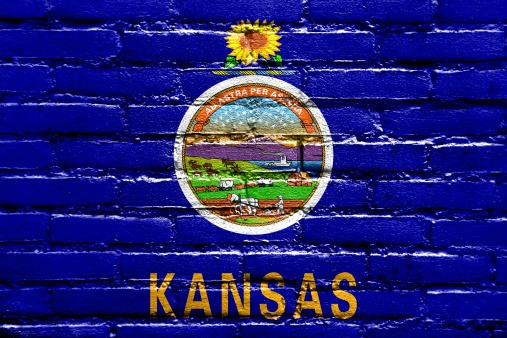 Kansas wind advocates and state lawmakers have brokered an agreement that keeps certain tax provisions for wind farm owners and developers intact in exchange for easing the state's mandated 20% by 2020 renewable portfolio standard (RPS) to merely that of a voluntary commitment.
Kansas wind advocates and state lawmakers have brokered an agreement that keeps certain tax provisions for wind farm owners and developers intact in exchange for easing the state's mandated 20% by 2020 renewable portfolio standard (RPS) to merely that of a voluntary commitment.
Kansas, which set a target of 20% renewable energy by 2020 back in 2009, is the latest state to roll back its renewable energy mandate. Last year, Ohio became the first state to successfully dismantle its RPS program.
Per the terms of the agreement, the current renewable energy mandate will transition into a voluntary goal of 20% by 2020 and continue the state's commitment to promote renewable energy as an important component of the state's energy mix.
For the wind industry, the agreement removes a 4.3% excise tax on wind energy production – a proposal that has been promoted as a measure to help fill the state's $600 million budget shortfall. The agreement allows wind farms to be taxed as commercial property – a change from the wind farms' current status as utilities.
With the change in tax status, also comes a reduction in the tax rate from 33% to 25%. It also protects all existing wind farms – and those under construction – allowing them to retain their property tax exemption. Going forward, projects will be taxed after a 10-year abatement.
‘The RPS has been a tremendously successful policy for Kansas, which is why it was achieved four years early,’ explains Jeff Clark, executive director at The Wind Coalition. ‘Through it, Kansas was able to diversify its energy mix, make itself more energy independent and bring substantial savings to electricity consumers. This was done with great benefit to the environment and substantial water savings.’
The agreement ends a string of attempts to kill the state's renewables mandate. In 2012 and 2013, the Kansas RPS survived separate legislative assaults, but the main arguments have basically stayed the same: RPS opponents claim the mandate is uncalled for and leads to higher electricity prices, while proponents maintain that the law helps boost the state's economy and diversify its energy portfolio.
Although it took sacrificing the RPS, a good deal is described as one that benefits all parties concerned, according to The Wind Coalition.Â
‘Tax policy in Kansas has also played a substantial role in the market's development. By addressing the market anxieties caused by uncertain tax policy in Kansas, this agreement allows wind energy investment and development to continue.’
Clark says the agreement has the support of Gov. Sam Brownback, R-Kans., and the legislature.
‘We are committed to growing renewable energy in Kansas, and this agreement represents the best path forward,’ says Clark. ‘We appreciate their commitment to a stable and reliable business climate for wind energy, and we look forward to continued growth.’



